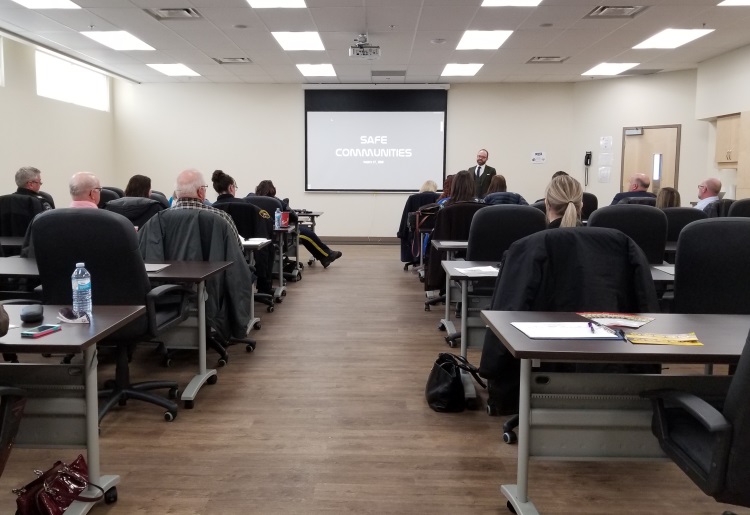With the legalization of marijuana on the horizon for Canadians, police and members of traffic enforcing units will have to make some adjustments as to how they deal with the drug once it's legal for personal consumption.
Wednesday morning a presentation and discussion on the legalization of marijuana and its effects on driving and the law was held at the Manufacturers Health and Safety Association building in Red Deer.
Robert Palser is a Senior Policy Counsel with the Alberta Crown Prosecution Service and also the Traffic Safety Coordinator for Alberta, and he says testing for drivers impaired by weed is more complicated than an alcohol breathalyser.
“Police have always had a variety of tools available to them to detect impaired driving. This isn’t new, obviously, for them, so they have an array of different options from standard field sobriety testing, to drug recognition evaluators, to the oral fluid screeners that people are talking about. So those are coming, but remember those aren’t the only tools that police have to detect impaired drivers.”
He reminds you that just because it'll be legal for personal use, doesn't mean it'll be a weed free for all with no limitations.
“Just like alcohol you have to be incredibly responsible with respect to the consumption of cannabis. Don’t think that cannabis doesn’t impair you, don’t think that police can’t detect you, and that there is going to be serious consequences for people who get stoned and drive.”
He says the biggest challenge for police is the shift between dealing with a substance that was completely illegal, to one that is legal for personal use but still illegal in others ways, such as trafficking, driving while high, and providing marijuana to anyone under the age of 18.







